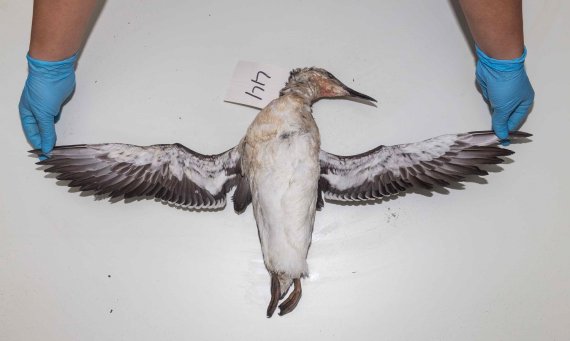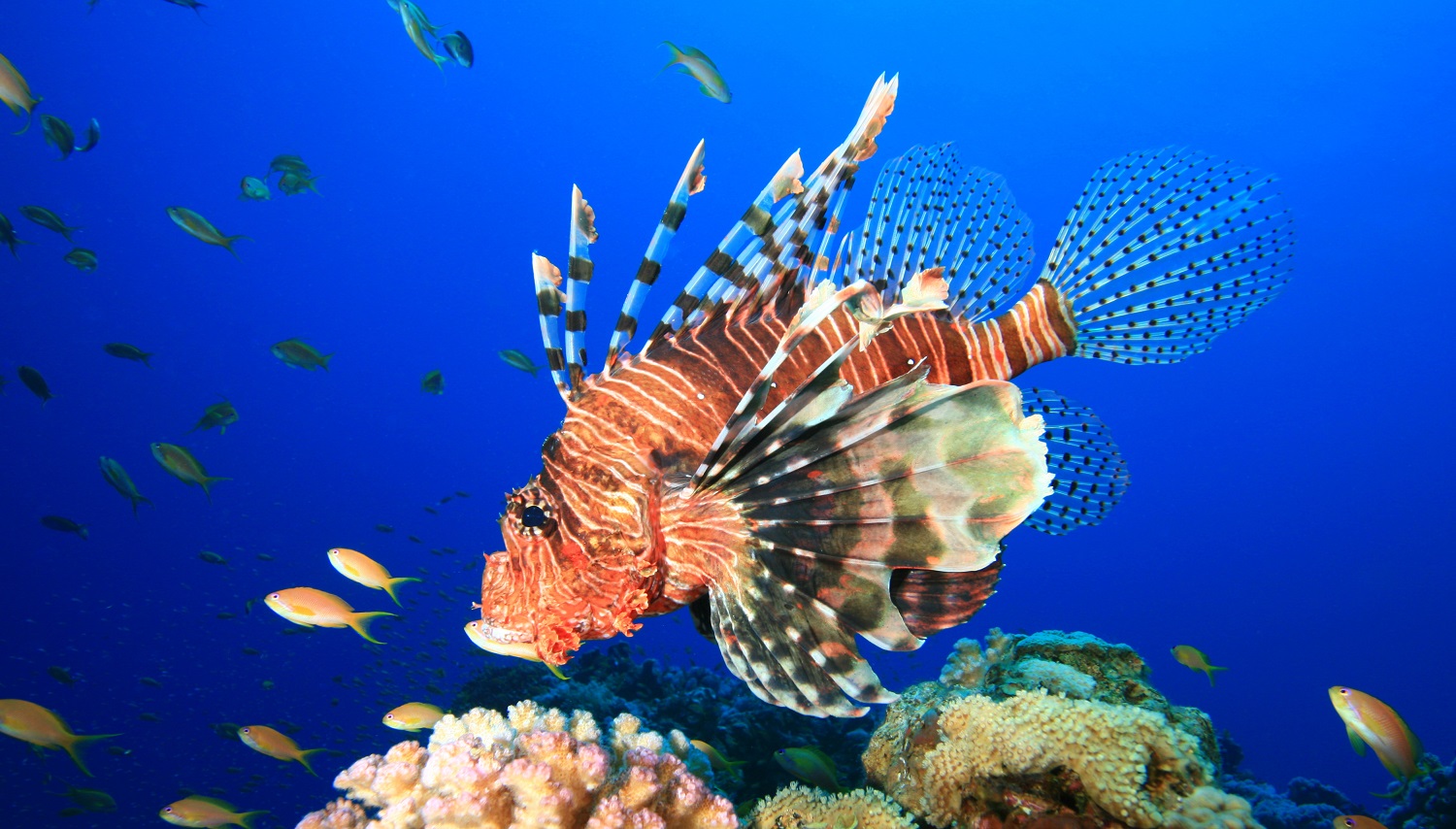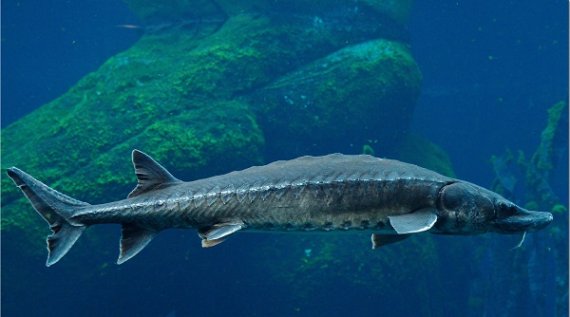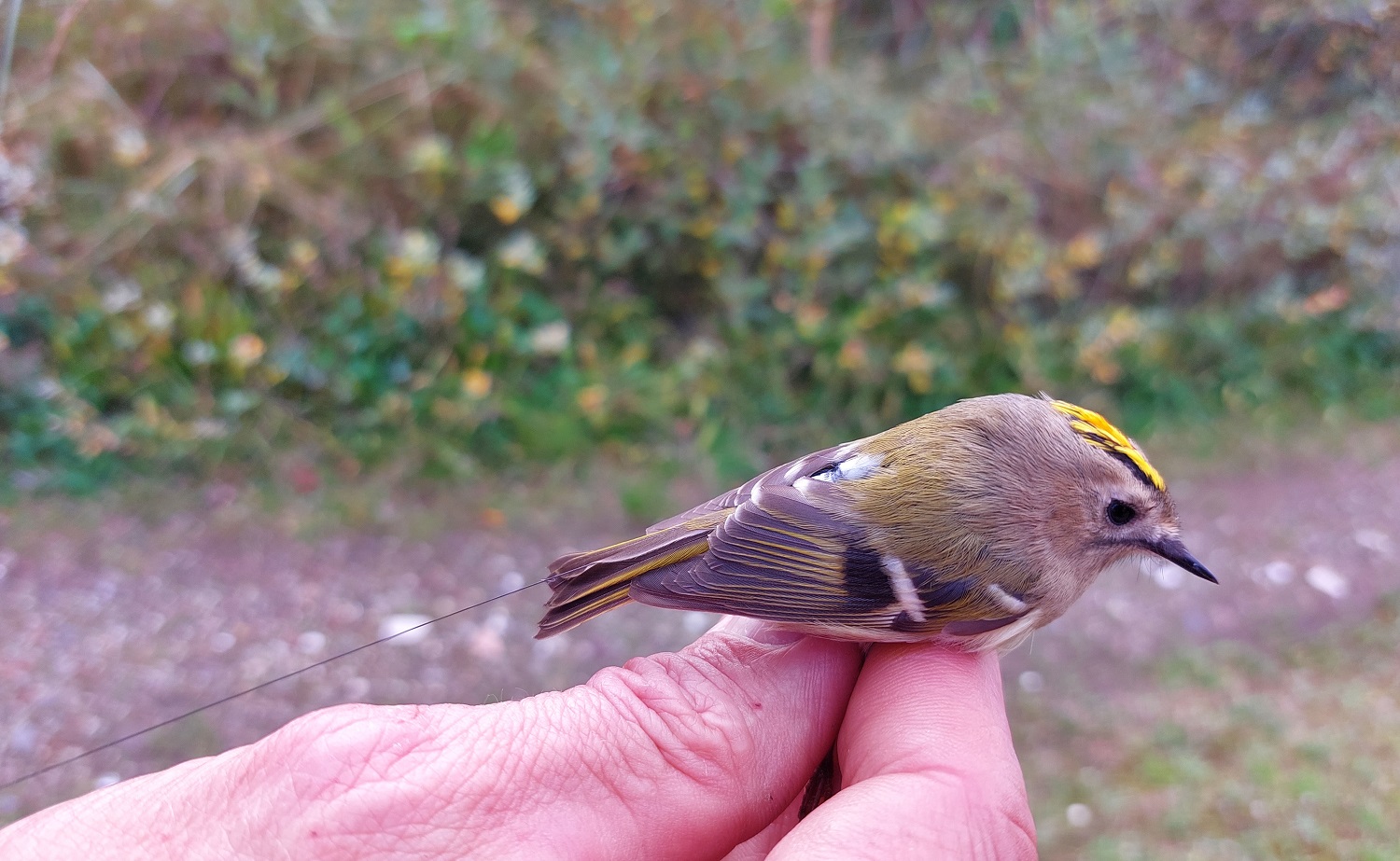The large numbers of common guillemots that washed up along the Dutch coast at the start of this year died of starvation, WUR and Utrecht University researchers have concluded from an extensive study.
According to the researchers, there is no link between the guillemot deaths and the disaster with the container ship Zoe. It was not surprising that a link was suspected. The Zoe lost at least 345 containers in the night of 1 to 2 January, and a lot of dead and ailing guillemots stranded on the coast in the weeks that followed. A thorough study was commissioned by the ministry of Agriculture, Nature and Food Quality.
Mass strandings of guillemots, assumed to be caused by starvation, are fairly common, says research leader Mardik Leopold of Wageningen Marine Research. ‘The last one in the Netherlands was in the early 1990s. But never before has a mass stranding been as thoroughly researched as this one. The opportunity to do this arose out of the commotion about the Zoe, and I seized it with both hands.
According to Leopold, the only possible conclusion is that the guillemots died because of their ‘deprived youth’. It was not toxins, plastic or a virus that felled them but hunger. This matches the findings of Scottish researchers. The last brooding season along the east coast of Scotland was tough for guillemots. The weight of the chicks was extremely low when they left the colony, say the Scots.
Low weight among chicks goes together with high death rates during their first winter at sea. Two out of three stranded guillemots were birds of less than six months of age. Their difficult youth raises new questions though, says Leopold. Why were the birds hungry and is this a systemic problem? He and his Scottish colleagues are going to do further research on this.

 One of the stranded dead common guillemots. Photo Jan Andries van Franeker
One of the stranded dead common guillemots. Photo Jan Andries van Franeker 


